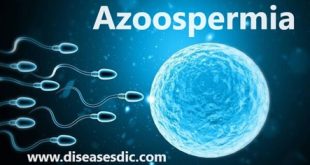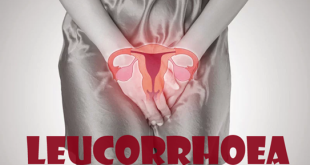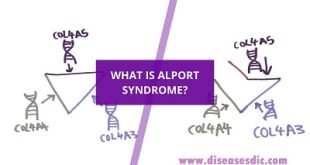Definition
Angina is chest pain, discomfort, or tightness that occurs when an area of the heart muscle receives decreased blood oxygen supply. It is not a disease itself, but rather a likely symptom of coronary artery disease, the most common type of heart disease. The lack of oxygen-rich blood to the heart is usually a result of narrower coronary arteries due to plaque build-up; a condition called atherosclerosis.
History
The condition was named “hritshoola” in ancient India and was described by Sushruta (6th century BC).
Types
Stable (or chronic) angina
Stable angina occurs when the heart is working harder than usual, for instance, during exercise. It has a regular pattern and can be predicted to happen over months or even years. Rest or medication relieves symptoms.
Unstable angina
Unstable angina does not follow a regular pattern. It can occur when at rest and is considered less common and more serious because rest and medication does not relieve it. This version can signal a future heart attack within a short time – hours or weeks.
Variant and microvascular angina
Variant (Prinzmetal’s) angina and microvascular (smallest vessels) angina are rare and can occur at rest without any underlying coronary artery disease. This angina is usually due to abnormal narrowing or relaxation (spasm) of the blood vessels, reducing blood flow to the heart. It is relieved by medicine.
Risk factors of angina
The following risk factors increase your risk of coronary artery disease and angina:
Tobacco use. Chewing tobacco, smoking and long-term exposure to second-hand smoke damage the interior walls of arteries including arteries to your heart allowing deposits of cholesterol to collect and block blood flow.
Diabetes. Diabetes is the inability of your body to produce enough insulin or respond to insulin properly. Insulin, a hormone secreted by your pancreas, allows your body to use glucose, which is a form of sugar from foods. Diabetes increases the risk of coronary artery disease, which leads to angina and heart attacks by speeding up atherosclerosis.
High blood pressure. Blood pressure is determined by the amount of blood your heart pumps and the amount of resistance to blood flow in your arteries. Over time, high blood pressure damages arteries.
High blood cholesterol or triglyceride levels. Cholesterol is a major part of the deposits that can narrow arteries throughout your body, including those that supply your heart. A high level of the wrong kind of cholesterol, known as low-density lipoprotein (LDL) cholesterol (the “bad” cholesterol), increases your risk of angina and heart attacks. A high level of triglycerides, a type of blood fat related to your diet, also is undesirable.
History of heart disease. If you have coronary artery disease or if you’ve had a heart attack, you’re at a greater risk of developing angina.
Older age. Men older than 45 and women older than 55 have a greater risk than do younger adults.
Lack of exercise. An inactive lifestyle contributes to high cholesterol, high blood pressure, type 2 diabetes and obesity. However, it is important to talk with your doctor before starting an exercise program.
Obesity. Obesity raises the risk of angina and heart disease because it’s associated with high blood cholesterol levels, high blood pressure and diabetes. Also, your heart has to work harder to supply blood to the excess tissue.
Stress. Stress can increase your risk of angina and heart attacks. Too much stress, as well as anger, can also raise your blood pressure. Surges of hormones produced during stress can narrow your arteries and worsen angina.
Causes of angina
Angina is usually caused by coronary heart disease. When the arteries that supply your heart muscle with blood and oxygen become narrowed, the blood supply to your heart muscle is restricted. This can cause the symptoms of angina.
The symptoms are often brought on by physical activity, an emotional upset, cold weather or after a meal. The episodes usually subside after a few minutes.
Symptoms
Symptoms associated with angina include:
- Chest pain or discomfort
- Pain in your arms, neck, jaw, shoulder or back accompanying chest pain
- Nausea
- Fatigue
- Shortness of breath
- Sweating
- Dizziness
The chest pain and discomfort common with angina may be described as pressure, squeezing, fullness or pain in the center of your chest. Some people with angina symptoms describe it as feeling like a vise is squeezing their chest or feeling like a heavy weight has been placed on their chest. For others, it may feel like indigestion.
Diagnosis and test
A correct diagnosis for chest pain is important because it can predict the likelihood of having a heart attack. The process will start with a physical exam as well as a discussion of symptoms, risk factors, and family medical history.
A physician who is suspicious of angina will order one or more of the following tests:
Electrocardiogram (EKG) – records electrical activity of the heart and can detect when the heart is starved of oxygen.
Stress test – blood pressure readings and an EKG while the patient is increasing physical activity.
Chest X-ray – to see structures inside the chest.
Coronary angiography – dye and special X-rays to show the inside of coronary arteries (dye is inserted using cardiac catheterization).
Blood tests – to check levels of fats, cholesterol, sugar, and proteins.
Treatment and medications
Angina treatments aim to reduce pain, prevent symptoms, and prevent or lower the risk of heart attack. Medicines, lifestyle changes, and medical procedures may all be employed. Lifestyle changes recommended to treat angina include:
- stopping smoking
- controlling weight
- regularly checking cholesterol levels
- resting and slowing down
- avoiding large meals
- learning how to handle or avoid stress
- eating fruits, vegetables, whole grains, low-fat or no-fat dairy products, and lean meat and fish
Medicines called nitrates (like nitroglycerin) are most often prescribed for angina. Nitrates prevent or reduce the intensity of angina attacks by relaxing and widening blood vessels.
Other medicines may be used such as:
- Beta blockers
- Calcium channel blockers
- ACE (angiotensin-covering enzyme) inhibitors
- Oral anti-platelet medicines
- Anticoagulants
High blood pressure medications may also be prescribed to treat angina. These medicines are designed to lower blood pressure and cholesterol levels, slow the heart rate, relax blood vessels, reduce strain on the heart, and prevent blood clots from forming.
In some cases, surgical medical procedures are necessary to treat angina. A heart specialist may recommend angioplasty. Coronary artery bypass grafting is another standard procedure; this is surgery where the narrowed arteries in the heart are bypassed using a healthy artery or vein from another part of the body.
Prevention of angina
Unfortunately you can’t reverse coronary heart disease, which causes angina, but you can help delay your arteries narrowing. To do this it’s important to:
- Stop smoking
- Control high blood pressure
- Reduce your cholesterol level
- Be physically active
- Achieve and maintain a healthy weight
- Control your blood glucose if you have diabetes
- Eat a healthy, balanced diet and only drink moderate amounts of alcohol.
Some medications can also be used to help prevent angina episodes.
 Diseases Treatments Dictionary This is complete solution to read all diseases treatments Which covers Prevention, Causes, Symptoms, Medical Terms, Drugs, Prescription, Natural Remedies with cures and Treatments. Most of the common diseases were listed in names, split with categories.
Diseases Treatments Dictionary This is complete solution to read all diseases treatments Which covers Prevention, Causes, Symptoms, Medical Terms, Drugs, Prescription, Natural Remedies with cures and Treatments. Most of the common diseases were listed in names, split with categories.








useful content
It’s a very good concised detailing about such a common & complicated condition,even non-medicals to understand easily.
Thanks for this informative info
Is Angina related to heartburn
Acid reflux and angina are two vastly different conditions, but in some cases, the same symptoms are described for both. Acid reflux, also known as heartburn, occurs when stomach acid washes back into the esophagus. It can cause a burning sensation radiating from the stomach through the chest and throat.
Angina occurs when blood flow to the heart is blocked by the narrowing or hardening of the arteries. It causes mild to severe pain behind the breastbone and can also feel like indigestion or heartburn
simple explanation for a common man to understand the problems related Heart stack.
thanks a lot.
it’s good….
can i do exercise …..i have angina problem
Regular physical activity can help with angina symptoms as it helps to improve the blood supply and prevents it from getting worse. Regular physical activity can have a positive effect on risk factors including: high blood pressure, high cholesterol levels (by raising the amount of ‘good’ cholesterol – HDL), diabetes (by gaining better control of blood sugar), having a family history of heart disease, smoking and increased body fat (in particular having lots of fat around the middle).
very informative article I enjoyed I am a patient of ayourtic valve stenosis in past at the age of 23 I have gone through under surgery of pulmonary valve stenosis now I am 57 years I often facing angina. Can you advice me any suggestions about my life style.
It is better to consult a cardiologist.
please,the country I am now,i can’t go to hospital because my Visa papers are not complete,,please my heart is seriously burning me,I can’t sleep in the afternoon, in the night is by God’s grace,,all my heart and stomach are seriously burning me,,please help your brother,tell me local way or any other way to treat this,,I am dieing.
Please search for some telemedicine to get help for your problem.
thanks, everything is understandable,but I think I have angina according to the few signs I have so far found,chest pain for 3 days,neck and back pain for one day,what can I really do.
PLEASE Consult a doctor.
nice information. thanks alot.pls myocadiac infarction and angina. are these the same??
If the narrowed arteries that feed the heart muscle become blocked or severely narrowed, it is called a myocardial infarction, commonly known as a heart attack.
Angina is the medical term for chest pain. The heart is not only the pump for the blood of our body but it is also a muscle.
Pls, can ECG text detect or confirm a person with Angina?
While an Electrocardiogram (ECG) is a valuable tool for assessing heart health, it may not definitively confirm angina. Angina, characterized by chest pain from reduced blood flow to the heart, can sometimes have normal ECG results. Additional tests, like stress tests or imaging studies, may be needed for a comprehensive diagnosis. If you experience chest pain or suspect angina, seek immediate medical attention for a thorough evaluation and appropriate treatment.